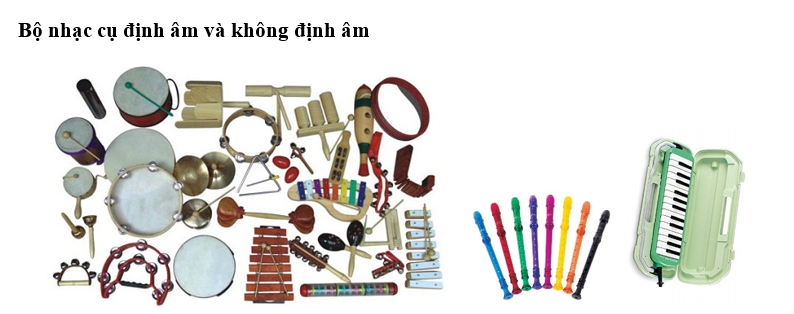Ứng dụng AI trong quá trình dạy và học piano có thể mang lại một số lợi ích. Dưới đây là một số cách bạn có thể tận dụng AI:
1. Thực hành ảo: Các ứng dụng piano được hỗ trợ bởi AI có thể cung cấp các buổi thực hành ảo, đưa ra phản hồi theo thời gian thực về thời gian, độ chính xác và kỹ thuật. Các ứng dụng này có thể phân tích hiệu suất của bạn và đưa ra các đề xuất được cá nhân hóa để cải thiện.
2. Gia sư thông minh: AI có thể hoạt động như một gia sư thông minh, hướng dẫn người học thông qua các bài học tương tác. Nó có thể thích ứng với sự tiến bộ của từng cá nhân và cung cấp các đề xuất được cá nhân hóa dựa trên trình độ kỹ năng và mục tiêu của người học.
3. Sáng tác tự động: Các thuật toán AI có thể tạo ra các bản nhạc piano gốc, cung cấp cho người học nhiều bản nhạc đa dạng để nghiên cứu và khám phá. Những tác phẩm này có thể được điều chỉnh theo trình độ và sở thích của người học.
4. Phân tích hiệu suất: AI có thể phân tích các hiệu suất được ghi lại và cung cấp phản hồi chi tiết về động lực học, cách diễn đạt và diễn giải. Nó có thể xác định các lĩnh vực cần cải thiện và đề xuất các kỹ thuật thực hành cụ thể để nâng cao hiệu suất tổng thể.
5. Học tập thích ứng: AI có thể tạo lộ trình học tập được cá nhân hóa, có tính đến điểm mạnh, điểm yếu và phong cách học tập của người học. Bằng cách điều chỉnh nội dung và nhịp độ, AI có thể tối ưu hóa trải nghiệm học tập và giúp người học tiến bộ hiệu quả hơn.
Hãy nhớ rằng, mặc dù AI có thể nâng cao quá trình học tập, nhưng điều quan trọng là phải kết hợp nó với các phương pháp truyền thống, chẳng hạn như làm việc với giáo viên và tham gia thực hành thực hành, để đạt được kết quả tốt nhất
Applying AI in the process of teaching and learning piano can offer several benefits. Here are a few ways you can leverage AI:
1. Virtual Practice: AI-powered piano applications can provide virtual practice sessions, giving real-time feedback on timing, accuracy, and technique. These apps can analyze your performance and offer personalized suggestions for improvement.
2. Intelligent Tutoring: AI can act as an intelligent tutor, guiding learners through interactive lessons. It can adapt to individual progress and provide personalized recommendations based on the learner's skill level and goals.
3. Automatic Composition: AI algorithms can generate original piano compositions, providing learners with a diverse range of pieces to study and explore. These compositions can be tailored to the learner's level and preferences.
4. Performance Analysis: AI can analyze recorded performances and provide detailed feedback on dynamics, phrasing, and interpretation. It can identify areas that need improvement and suggest specific practice techniques to enhance overall performance.
5. Adaptive Learning: AI can create personalized learning paths, taking into account the learner's strengths, weaknesses, and learning style. By adapting the content and pacing, AI can optimize the learning experience and help learners progress more efficiently.
Remember, while AI can enhance the learning process, it's important to combine it with traditional methods, such as working with a teacher and engaging in hands-on practice, to achieve the best results.
Applying AI in the process of teaching and learning piano can offer several benefits. Here are a few ways you can leverage AI:
1. Virtual Practice: AI-powered piano applications can provide virtual practice sessions, giving real-time feedback on timing, accuracy, and technique. These apps can analyze your performance and offer personalized suggestions for improvement.
2. Intelligent Tutoring: AI can act as an intelligent tutor, guiding learners through interactive lessons. It can adapt to individual progress and provide personalized recommendations based on the learner's skill level and goals.
3. Automatic Composition: AI algorithms can generate original piano compositions, providing learners with a diverse range of pieces to study and explore. These compositions can be tailored to the learner's level and preferences.
4. Performance Analysis: AI can analyze recorded performances and provide detailed feedback on dynamics, phrasing, and interpretation. It can identify areas that need improvement and suggest specific practice techniques to enhance overall performance.
5. Adaptive Learning: AI can create personalized learning paths, taking into account the learner's strengths, weaknesses, and learning style. By adapting the content and pacing, AI can optimize the learning experience and help learners progress more efficiently.
Remember, while AI can enhance the learning process, it's important to combine it with traditional methods, such as working with a teacher and engaging in hands-on practice, to achieve the best results.
Applying AI in the process of teaching and learning piano can offer several benefits. Here are a few ways you can leverage AI:
1. Virtual Practice: AI-powered piano applications can provide virtual practice sessions, giving real-time feedback on timing, accuracy, and technique. These apps can analyze your performance and offer personalized suggestions for improvement.
2. Intelligent Tutoring: AI can act as an intelligent tutor, guiding learners through interactive lessons. It can adapt to individual progress and provide personalized recommendations based on the learner's skill level and goals.
3. Automatic Composition: AI algorithms can generate original piano compositions, providing learners with a diverse range of pieces to study and explore. These compositions can be tailored to the learner's level and preferences.
4. Performance Analysis: AI can analyze recorded performances and provide detailed feedback on dynamics, phrasing, and interpretation. It can identify areas that need improvement and suggest specific practice techniques to enhance overall performance.
5. Adaptive Learning: AI can create personalized learning paths, taking into account the learner's strengths, weaknesses, and learning style. By adapting the content and pacing, AI can optimize the learning experience and help learners progress more efficiently.
Remember, while AI can enhance the learning process, it's important to combine it with traditional methods, such as working with a teacher and engaging in hands-on practice, to achieve the best results.
clear
Nghe
1.553 / 5.000
Kết quả dịch
Kết quả bản dịch
star_border
.










 tháng 7 15, 2023
tháng 7 15, 2023


0 nhận xét:
Đăng nhận xét